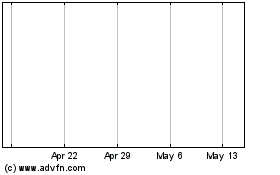AMDL's Recent U.S. Patent for Immunogene Therapy for Cancer Details Development of 'Humanized Mouse' to Assist Subsequent Human
June 01 2004 - 6:00AM
PR Newswire (US)
AMDL's Recent U.S. Patent for Immunogene Therapy for Cancer Details
Development of 'Humanized Mouse' to Assist Subsequent Human Trials
for Biopharma Industry TUSTIN, Calif., June 1
/PRNewswire-FirstCall/ -- AMDL, Inc. (AMEX:ADL), developer and
marketer of tests for the early detection of cancer and other
serious diseases, which recently announced it launched a major
effort to seek a strategic partner for clinical trials, and
eventual marketing, of its unique Combination Immunogene Therapy
(CIT), today said that the important U.S. patent it recently
received highlights new gene therapy compositions that might be
useful in treating specific forms of cancer and details the
development of mice that will be far more useful in animal studies
because of their human-like immune system. Specifically, a
"humanized" mouse is claimed by AMDL that has been engineered to
possess a human-like immune system. This transgenic mouse is
extremely useful for studying potential therapeutic benefits of
candidate gene therapy compositions. Because the natural mouse
immune system differs from the human immune system, experiments
conducted in conventional mice are not always predictive of how new
therapeutic compounds will work in humans. However, transgenic mice
made in accordance with AMDL's patents have an immune system more
like a human's. Results obtained from experiments using this mouse
may correlate significantly better than traditional animal models.
That is why these mice are referred to as "humanized mice."
Additionally, AMDL has patents and patents pending claiming novel
animal models and methods for using these. "Medical science has
long been concerned about adverse occurrences in human trials that
aren't predicted in traditional animal studies," said Gary Dreher,
AMDL CEO. "With the novel animal models we have developed, some of
these important concerns could be eliminated." CIT uses two genes
in combination to build the body's immune system and to destroy
cancer cells. The GM-CSF gene alters the tumor to activate
tumor-specific T-cells within the immune system, while the B7-2
gene enters the tumor to stimulate larger and stronger T-cells to
fight the cancer. This is a variation of the traditional concept of
gene therapy, which seeks to replace damaged or abnormal genes with
healthy ones. Replacing defective genes in cancer cells has proven
impractical because of the number of genes involved. CIT has
undergone successful Phase I clinical trials in skin and brain
cancer patients and was shown to be 100 percent effective in a
humanized mouse model at the University of Alberta, Canada.
Publications that have reported on this therapy include "Human Gene
Therapy" and "Neurosurgery." "Potential products in the
multi-billion dollar global cancer market are being sought by major
pharmaceutical and other companies and we believe our therapy has
significant, important features to offer to these firms," said Gary
Dreher, AMDL President and CEO. AMDL is a theranostics company,
meaning it is involved both in the treatment of cancer, with the
CIT therapy, and in its detection, with the DR-70(R) cancer blood
test kit. The Company currently is supplying information requested
by the U.S. Food and Drug Administration as part of the process in
seeking clearance to market the DR-70(R) test for monitoring colon
cancer. About AMDL AMDL, Inc. (AMEX:ADL), headquartered in Tustin,
California, is a theranostics company, involved in the detection
and treatment of the same disease, cancer. AMDL is the inventor,
developer and worldwide marketer through exclusive distribution
agreements of the DR-70(R) non-invasive cancer blood test, which
has demonstrated its ability to detect the presence in humans of up
to 13 cancers 84 percent of the time overall. In a study published
in the Journal of Immunoassay (1998, vol. 19, pp 63-72) DR-70(R)
was shown to detect at least 13 different types of cancer (lung,
breast, stomach, liver, colon, rectal, ovarian, esophageal,
cervical, trophoblastic, thyroid, malignant lymphoma, pancreatic)
although the sample size for 9 of the cancers was not statistically
significant. Clinical trials of DR-70(R) have been conducted in
Canada, China, Germany, Taiwan and Turkey. DR-70(R) can detect many
kinds of cancer using a single tube of blood, eliminating the need
for costly, multiple tests. AMDL also owns a combination immunogene
therapy technology that is a possible treatment for those already
diagnosed with cancer and could eventually be used as a vaccine to
protect patients known to be at risk because of a family history
for certain types of cancer. The combination therapy both builds
the body's immune system and destroys cancer cells. More
information about AMDL and its additional products can be obtained
at http://www.amdlcorporate.com/. Forward-Looking Statements
Statements in this press release may constitute forward-looking
statements and are subject to numerous risks and uncertainties,
including the failure to complete successfully the development of
new or enhanced products, the Company's future capital needs, the
lack of market demand for any new or enhanced products the Company
may develop, any actions by the Company's partners that may be
adverse to the Company, the success of competitive products, other
economic factors affecting the Company and its markets, and other
risks detailed from time to time in the Company's filings with the
Securities and Exchange Commission. The actual results may differ
materially from those contained in this press release. The Company
disclaims any obligation to update any statements in this press
release. DATASOURCE: AMDL, Inc. CONTACT: Gary L. Dreher, President
& CEO of AMDL, Inc., +1-714-505-4460 Web site:
http://www.amdlcorporate.com/
Copyright
Amdl (AMEX:ADL)
Historical Stock Chart
From May 2024 to Jun 2024

Amdl (AMEX:ADL)
Historical Stock Chart
From Jun 2023 to Jun 2024
